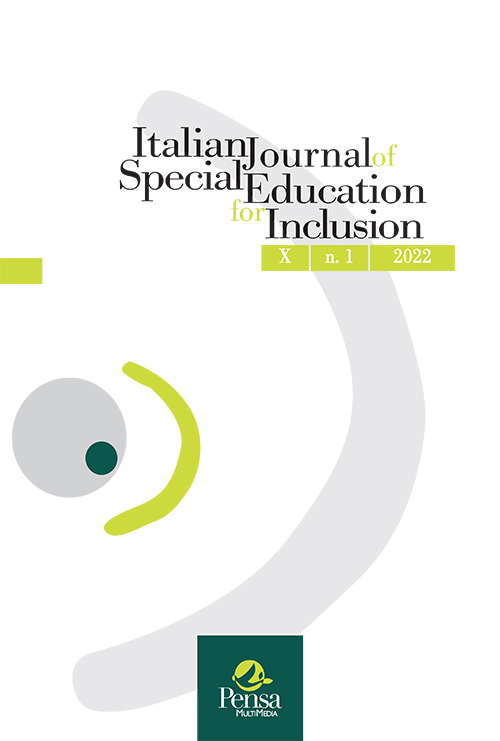Disabilità come dramatis persona: ovvero del corpo (disabile) come luogo di (auto)rappresentazione
DOI:
https://doi.org/10.7346/sipes-01-2022-16Abstract
Starting from a preliminary overview on the places and practices that have regulated the relationship between disability and performing arts from the second half of the nineteenth century to today, this contribution intends to investigate the role assumed by the person with disabilities on the contemporary performance scene from the perspective of the “disable” body. The paper aims at laying the foundations for a critical reflection which, consistently to the recent emancipatory theories that characterize the current debate on special pedagogy, can interrogate and illuminate the topic. Convinced that the artists with disabilities force us to rethink the boundaries of human experience and to broaden and integrate our interpretations, disability turns out to be dramatis personae, a presence with an evocative (self)representative potential.


